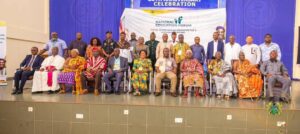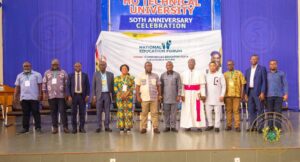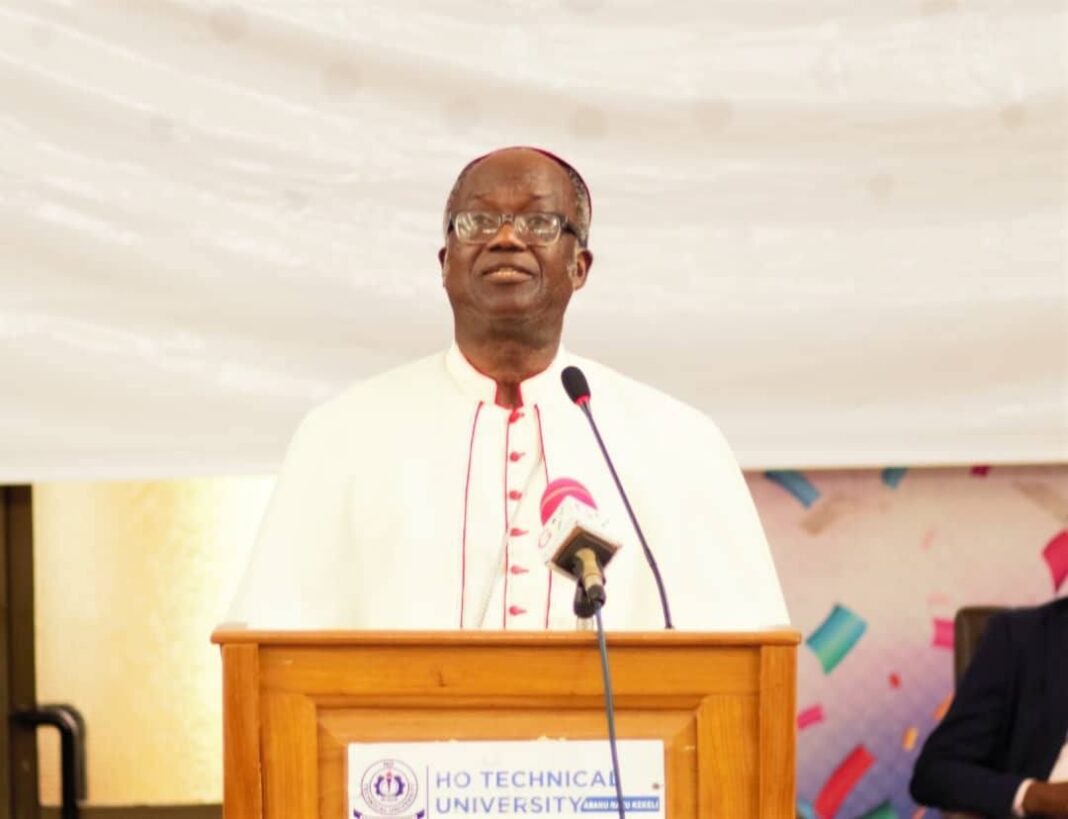I bring you warm greetings from the Catholic Church and the Ghana Catholic Bishops’ Conference. I wish, at the outset, to state that the Church accepts the apology from His Excellency, the President of the Republic, the Minister of Education and the Chairman of the National Education Forum Committee for the near omission of the Conference, the Christian Council and other religious stakeholders from this forum.
I wish also to express the Church’s gratitude to the President and the Minister of Education for the rather expedited turn and subsequent invitation of the Church to be a part of this all-important educational engagement.
Indeed, the Catholic Church is very happy to be associated with the National Education Forum under the theme: Transforming Education for a Sustainable Future. Education is understood globally as the bedrock for economic growth and development as well as a tool for positive social transformation.
In fact, the importance of education to an economy cannot be overemphasized, especially in this 4th industrial revolution. Hence, the need to do everything possible under the sun to continuously make it relevant to the changing needs of society.

It is worth mentioning that in 2011, the Catholic Church held her first Education Forum in Kumasi, where critical educational issues were discussed for the transformation of education in the country.
The move by the President of the Republic, His Excellency President John Dramani Mahama to constitute a committee to analyze the current education system and make recommendations is in tandem with the Catholic Church’s position as she prepares to hold her second education forum on 10-15 March, this year after the initial plan to host it sometime last year.
The Catholic Education Forum is under the theme: Catholic Education for Integral Development: Shaping a Resilient and an Inclusive Ghana. The themes for both the national and the Catholic fora speak volumes about the fact that education has to undergo some drastic transformation to bring about the needed teaching and learning outcomes for the world of work and a better society.

As this Committee continues with its work, I, on behalf of the Catholic Church, the Ghana Catholic Bishops’ Conference, the Catholic Education Unit wish to bring to the fore some concerns of the church:
– The non-compliance by some politicians and government appointees with the partnership that exists between the government and the Catholic Church in the provision of education in the country poses serious worries to us, the Catholic Church
– Some appointments and transfers to and from Catholic schools without recourse to the church leave the church wondering whether there exists a partnership.
– The dissemination of information on educational matters without reaching out to a major stakeholder in education such as the Catholic Church is not acceptable
– The unfriendly nature of some Education Directors to the Catholic Church does not in any way promote collaboration in the delivery of quality education.
– The lack of opportunity for the church to be involved in the management of her schools, thus eroding the faith identity of our schools.
– The exclusion of mission/unit representatives on the Ghana Education Council. This representation was withdrawn in the revised Education Act approved by the 8th Parliament of the 4th Republic.
– The upsurge in social vices and corrupt practices in the country is a great source of worry to the Church. Thus, the Church wishes to emphasize Religious, Moral, Ethical and Civic education that will lead to the production of responsible and productive citizens and not just knowledgeable and skillful individuals who will be social misfits.
– The use of Catholic school compounds for structural developments without any engagement with the Church is in bad taste for the Church.
– The over-population of our second cycle schools is of great concern to us as it has affected character formation, teacher/student ratio, and teacher contact hours with individual students and proper supervision.
– The infrastructural deficit in our schools and the pressure it puts on existing structures that were meant for a lesser student population.
Since Catholic schools are an extension of the Church’s faith, the Church wishes to humbly appeal to His Excellency, the President of the Republic to consider posting newly recruited teachers who are Catholics to Catholic schools to keep the Catholic faith alive in Catholic schools so that we do not lose our identity in our own schools.

Let us all seize this opportunity to remind ourselves about the Memorandum of Understanding that exists between the government of Ghana and the Mission/Unit schools for effective collaboration and unity of purpose in the delivery of desired educational outcomes.
Furthermore, the Catholic Church, on behalf of all mission/unit schools and on her own behalf looks forward to receiving a written policy direction by this Committee on the partnership between mission/unit schools and the government on the management and delivery of quality education.
On behalf of the Catholic Church, the Ghana Bishops’ Conference, the Catholic Education Unit, I wish to sincerely thank His Excellency, President John Dramani Mahama, the Honorable Minister for Education, Hon. Haruna Idrisu and the National Education forum Committee for this golden opportunity extended to us to be a part of this engagement of chatting a new path for our education sector.
May the good Lord be with you as you continue to engage other key stakeholders in education. We look forward to seeing a much better transformed education system for improved educational outcomes and may God bless our homeland Ghana. I thank you for your attention.
MOST REV. EMMANUEL KOFI FIANU, SVD
VICE PRESIDENT, GHANA CATHOLIC BISHOPS CONFERENCE



